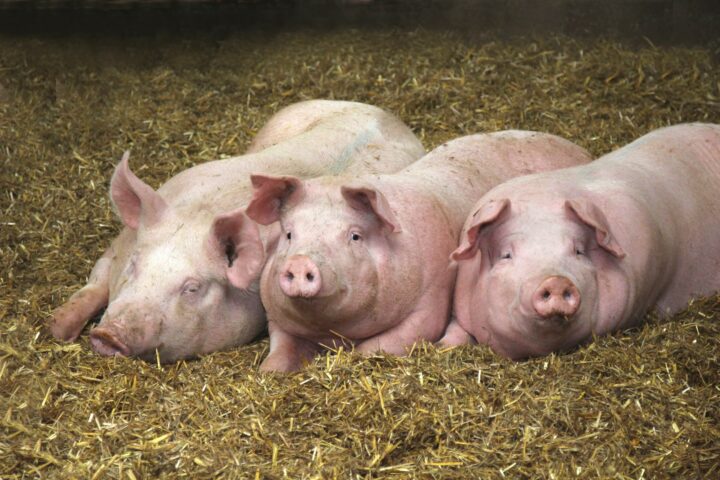
The great benefits of biotechnology in agriculture
Bioengineered crops have been cultivated in many parts of the world for around 25 years. Several publications bear witness to the great benefits of biotechnology in agriculture. The cultivation of the plants has a positive effect on the environment, the climate and yields for farmers.
Wednesday, January 18, 2023
Agriculture has been using bioengineered plant varieties since 1996. Biotech varieties are now planted on 13 percent of the world's arable land. Soy, corn, cotton and rapeseed account for the largest fractions of this volume. The British agricultural economist Graham Brookes has examined the economic and ecological effects of cultivation in the period from 1996 to 2020 in several publications in specialist journals.
Higher yields
His findings paint a clear picture. The cultivation of bioengineered varieties contributes to significantly higher yields and thus to higher incomes for farmers. In the period under examination, one billion additional tons of food, animal feed and fiber crops were produced. Yields of insect-resistant corn were, on average, 17 percent higher than conventional crops. The same applies for cotton that was genetically engineered to improve resistance to certain harmful insects. Harvests increased by an average of 14.5 percent.
Less crop protection needed
However, biotechnology provides more than just larger harvests. Thanks to crops endowed with resistance to insect pests, farmers also had to apply fewer insecticides. In the period between 1996 and 2022, a total of 7.5 million tons of pesticides could be dispensed with. This corresponds to 1.5 times the amount used in China every year. Where biotech varieties were grown, the use of pesticides was reduced by an average of 7.2 percent. For cotton and corn, the amount of insecticides applied fell by 30 and 41 percent respectively.
Lower CO2 emissions
The cultivation of genetically modified plants also has a positive effect on CO2 emissions. Since the plants are more resistant to pests, tractors do not have to be driven over the fields so often. This saves diesel and CO2. Cultivating varieties that are tolerant to specific herbicides also allows gentler weed control. Thanks to the use of herbicides, the soil does not have to be plowed as often and thus binds more carbon. Many farmers were able to switch to plowless cultivation systems. In 2020, such cultivation methods saved 23.6 million kilograms of CO2. This corresponds to the annual CO2 emissions of around 15 million cars.
Reduced space requirement
Biotechnology has also contributed to more efficient land management. Due to the significantly higher yields compared to conventional cultivation methods, biotech varieties occupy less land. In order to maintain global yields of soybeans, corn, cotton and canola without biotechnology, an additional 234,000 square kilometers of cultivated land would be required. This corresponds to about six times the area of Switzerland.
Sources
Kindly note:
We, a non-native editorial team value clear and faultless communication. At times we have to prioritize speed over perfection, utilizing tools, that are still learning.
We are deepL sorry for any observed stylistic or spelling errors.
Biotechnology is also of great benefit to smallholders
Contrary to popular belief, biotechnology in agriculture can also help small farmers to protect their harvests better, as shown by the use of genetically modified eggplants, for example. The farmers have to spray far fewer insecticides, can harvest more and their income has also increased significantly, as the example of Bangladesh shows. In this specific case, Bt (Bacillus thurigiensis), which is approved as a pesticide in organic farming, was bred into the eggplant using transgenetics so that it can protect itself. In cooperation with other institutions, ETH researchers have identified the gene that provides resistance against the dreaded mosaic disease in cassava. Through genome editing, this staple food, which is extremely important in Africa and Southeast Asia and mostly grown by smallholders, could be successfully protected from this viral disease.
Related articles

Why consumers accept gene-edited foods on their plates
Acceptance of gene-edited foods increases when their tangible benefits are clear to consumers. Studies show that visible advantages for health, the environment or food security are key to public support.

What’s Really in Your Shopping Basket
Genetic engineering in our shopping basket? Yes – and much more often than we think. Whether it’s pasta, bread or vegetables: many of the everyday products we consume come from mutation breeding, which involves altering the genome and is considered safe. It’s high time to debunk the common myths.

Genomic breeding methods are not given a chance to prove themselves
Modern genomic breeding methods are legally classified as genetic engineering – and are therefore still effectively blocked. Yet we have been eating genetically modified plants for decades, just under the label of “classical mutagenesis.” The new, more precise techniques are regulated more strictly than the old ones, even though they are considered safer from a scientific perspective. A contradiction that urgently needs to be corrected. The EU is setting a good example.

No Pig Business: Why Testicle-Free Boars Are a Clear Win for Animal Welfare
New breeding methods are opening up new possibilities in both plant and animal breeding. They allow targeted genetic changes that can make animals more resilient, adaptable, and healthier.

